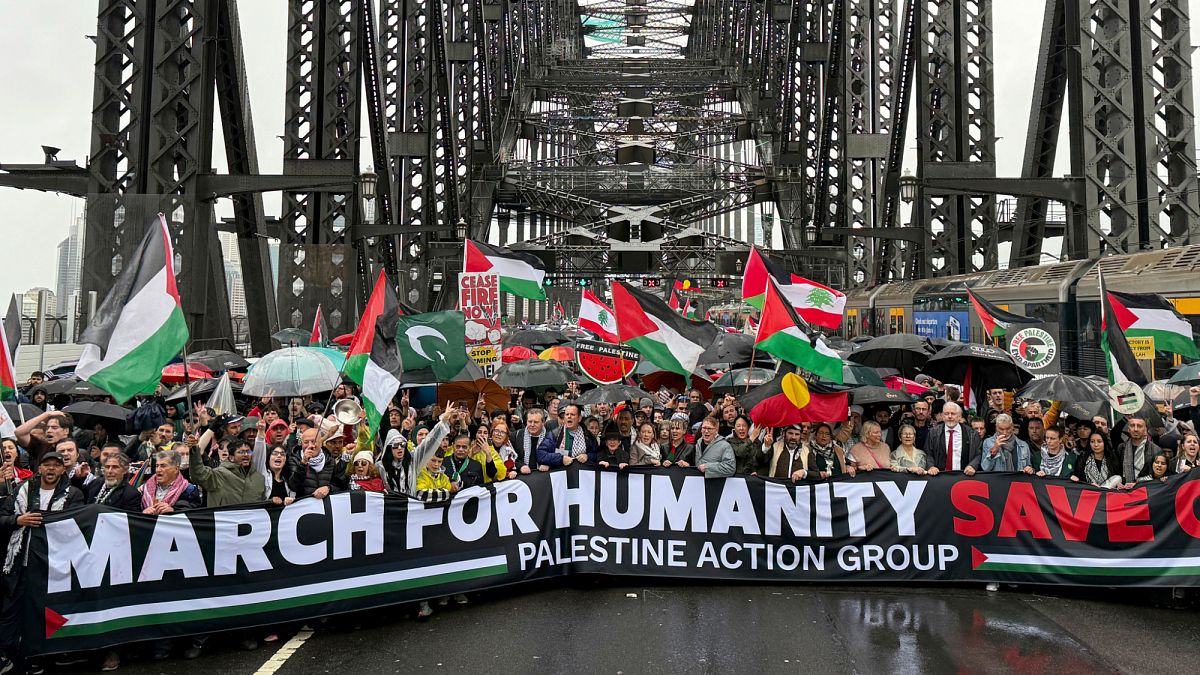

In a serene display of unity and support, thousands of demonstrators peacefully crossed the iconic Sydney Harbour Bridge on Sunday in a pro-Palestinian march. This gathering underscored the growing call for international attention and action over the ongoing challenges faced by Palestinians, drawing significant focus on the need for a sustainable two-state solution to the Israeli-Palestinian conflict.
The march comes in the backdrop of pressing discussions on the international stage about the humanitarian crisis unfolding in Gaza. Australian Foreign Affairs Minister, Penny Wong, emphasized the imperative of a two-state resolution, cautioning that without international intervention, there might soon be no Palestinian state left to acknowledge. Her statements highlight a broader diplomatic effort aimed at urging key stakeholders, including Israel, to actively engage in peace talks and open channels for humanitarian aid.
Australian Prime Minister Anthony Albanese has been actively holding conversations with Palestinian Authority President Mahmoud Abbas, advocating for the acceleration of humanitarian assistance into the conflict zone. During their talks, Albanese reiterated the critical need for aid, while also pressing for the release of hostages held since early October. The focus on humanitarian relief aims to support the affected Palestinian civilians facing dire conditions in the region.
The situation in Gaza remains complex, with social media playing a dual role in both portraying and allegedly distorting the realities on the ground. Pro-Israel narratives on various platforms cite the presence of open cafes in Gaza as evidence against reports of widespread hunger among the Palestinian population. However, these images stand in stark contrast to reported data and firsthand accounts that paint a different picture of scarcity and starvation challenges faced by many residents.
Israeli officials, including Prime Minister Benjamin Netanyahu, have dismissed the notion of deliberate starvation, attributing any suffering to mismanagement by Hamas. Netanyahu and other government representatives argue that any shortages in aid distribution are a result of misappropriation by Hamas, rather than an externally imposed starvation policy.
However, the diverse views on realities within Gaza highlight the fractured narratives that exist on both sides. The international community is thus called to sift through these conflicting narratives and foster a balanced, humanitarian approach that addresses the needs of the populace while striving for long-lasting peace.
The peaceful Sydney march, while just one of many global movements, symbolizes a broader quest for peace and resolution. This global desire is mirrored by the diplomatic efforts underway, as many countries advocate for a return to negotiations and dialogues rooted in mutual understanding and humanitarian concerns.
While challenges undeniably remain, the continued advocacy for a two-state solution and the push for opening up humanitarian corridors reflect a resilient hope for change. Such efforts are crucial in gradually paving the way for a stable coexistence and redefining the future for millions affected by this prolonged conflict.
As the world watches these developments unfold, the echoes from Sydney’s harmonious march serve as a reminder of the shared human aspirations for peace and dignity, urging leaders to act with empathy and foresight for a better tomorrow.
Source: {link}
